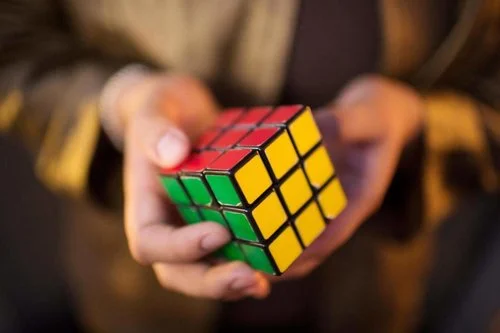Chess has become increasingly popular in Armenia since early Middle Ages. Chess gained the widespread recognition in the early 1960’s when GM Tigran Petrosian became the World Chess Champion. Chess has now become mandatory in school in Armenia for every child that is over the age of 6. The idea behind the initiative is driven by school officials that strongly believe that a subject like chess can immensely enhance cognitive skills within kids, such as, higher concentration, better memory, improved strategical thinking. Watch the video below to learn more about this incredible move:
A Glimpse Into the Competitive Learning Environment that We Foster at Mind Mentorz
Extra-curricular activities – We have been told since time immemorial that it is essential to participate in activities that are separate from our day to day actions.
Let’s take a second to figure out exactly why this is so important. Besides the overused terms such as personality development and forming of a well-rounded individual, we tend to ignore the main purpose of these activities that is to build and improve cognitive function. It is scientifically proven that beginning to work on these skills at an early age helps not only academically but also allows the mind to think differently and perform tasks with more efficiency.
How In-person Classes at Mind Mentorz Help Develop Your Kids' Cognitive Skills?
There are classes and then there are classes that are fun and interactive. Mind Mentorz belongs to the latter class of afterschool programs. The fundamentals of an afterschool institute is the same - a safe and secure premises, essential equipments, mentors and coaches. But where we differ is the way we approach our programs.
Here, we believe in collective evolution and all of us develop new skills, learn things, interpret, apply and have fun doing them. One of our major elements we consider as our primal success is the fact that kids love coming back to our classes every week. We have heard personally that they wait to get to classes and participate in our sessions. That is by far the biggest compliment we have ever received.
But how do we do this? How can you make learning fun and still substantially develop kids' cognitive skills? Well, here's how!
The Atmosphere
At Mind Mentorz, we foster an atmosphere that kids love. Such an atmosphere sustains interests in kids and help them be at their best phases of creativity, imagination, competitive levels and more. We add interesting and unique ways to keep our programs and classes fun and interactive so there is active participation and involvement from every kid in the program.
We also leave space for healthy competition in our programs so kids can realize at a very young age that it is important to know where they stand in comparison to others and how they can bring in their unique identity, perspective and thoughts in their work to stand out. Once we set the stage for competition, we see kids going an extra mile in bettering themselves and even helping other kids in the process.
Room for Creativity and Imagination
One of the major things that differentiates kids from us is their ability to be creative and imaginative. Logic to them is ancillary and the focus is more on believing their thoughts are true. Innate features like these are what would lay foundations for discoveries and make the world a better place. When kids come up with something unthinkable, we don't buzzkill by proving them wrong. We let them explore the possibilities and nurture their creativity to make their visions true.
Our robotics and coding classes help achieve this substantially. When they can say they can come up with an idea to remind them to wear white canvas shoes on Thursdays or just pack their homework notebooks, we let them venture into their ideas. At the root of the most offbeat ideas lie solutions.
Communication
If the imagination of one kid is so contagious and exciting, visualize a place of 20 to 30 kids envisioning things together! This is the collective growth we are talking about. When kids talk, they don't just talk about cartoons or games. They talk about their moves in chess, the duration within which they solved the Rubik's cube or an interesting project they are working on. When conversations are about ideas, progress and thoughts, how cannot there be space for mental evolution?
Well, these are just a few of the ways we stand out. We have our excellent coaches and mentors, who become kids when they are around with them. We also have a tailored program structure designed to make them learn newer life skills. If you're keen on taking a personal look on how we take our classes, arrange for a free class today!
The Thought Process behind Sacrifices in Chess
Chess is complex. We have to agree to that. The amount of calculations, thought processes and conceptualizations involved are perhaps more in chess than any other game. For a lot of us beginners, it could be a little scary as well, with the fear of embarrassment accompanying each move. When playing, it usually happens that a lot of our calculations go wrong and we end up losing coins. From accidentally losing pawns to completely forgetting about the unguarded queen, we would have seen them all.
10 Facts About Rubik's Cube You Are Reading For The First Time
Rubik's cube is not just fun to use but engaging as well. Before accessories like fidget spinners made it to our hands (without a purpose perhaps), most of us had a Rubik's cube. While some of us used it to stay focused and get thinking about things, others used it religiously to work on their motor skills, concentration and logical thinking skills. Regardless of the purpose it served, it is one of the best toys or gifts we ever received as kids.
BOBBY FISCHER - GENIUS PERSONIFIED
March 9, 1943 marked the birth of an incredible young talent. Bobby Fischer became the first American-born world chess champion after defeating his arch rival Boris Spassky. He was also the world’s youngest international grandmaster at the age of fifteen. Bobby was only a six-year-old, when he learnt how to play chess along with his sister by reading the instructions found in a chess set. His sister Joan had picked up the chess board from a candy store below their apartment.
Coding Prodigies You Need To Know About Today
While we sleep, there are people in the nooks and corners of the world desperately carving their way towards excellence. Full of inspiring stories, visions and breakthroughs, they have this knack of looking at things from wider and newer perspectives. It may seem a bit of a cliché but these people have always asked why not instead of why and the result is the place they stand today in their lives.
4 Essential Books on Coding for Kids
At Mind Mentorz, we personally consider this post close to our heart mainly because of two things. Firstly, it brings to the light the inevitability of coding, its pros and influence on kids’ imagination and true inner potential. Secondly, and most importantly, it aims at bringing back the long-lost habit among the kids of today of picking up a book and reading it.
Simple Projects To Get Your Kids Hooked to Robotics
Introducing robotics and to kids has two major takeaways – your kids have the time of their lives experimenting with simple tools and concepts and they learn a lot of new things and skills along the way. It is an interactive and engaging for the kids and when you team them up with a couple of their friends, you could seen an electrifying environment around them. Over the last few posts, we have been emphasizing the importance of teaching robotics to your kids and on this one, we have compiled a few simple projects your kids can work on under your supervision.
Why Your Kids Should Start with Artificial Intelligence Early?
There is no denying that kids have grasping skills that cannot be compared to any adult. The sheer focus – regardless of the span – kids have on their task or work lets them quickly comprehend, analyze, interpret and solve concerns appropriate for their age. That is exactly why parents should go an extra mile in helping them inculcate new skills right from an early stage.
5 Simple Coding Projects for Your Kids
It's summer and as parents, most of us are looking for effective and exciting ways to engage our kids. If you have not enrolled your kids to a Summer Camp program, you can still pave way for a productive summer. Though televisions, video games and tablets are fine, kids need constant nurturing in terms of developing new abilities, creativity, logical reasoning and more. That is why we have the most ideal solution that will not just keep the kids engaged but let them have fun while doing it as well.
5 Movies on Mind Games You Should Binge Watch This Weekend
Some of the best movies are those that take us on a journey along with the heroes. But some of the greatest movies are those that let us get inside their minds and get a sneak-peek of their thoughts and voices. Hollywood has produced some really stunning movies based on mind games and tricks. As players of Rubik’s Cube and chess, we do enjoy our share of mind tricks and manipulation and perhaps, we could take some pop culture references to better our games and thought processes.
What say?
So if you are free this weekend, here are the best movies on mind games you should binge on.
Inception
A revolutionary plot, a breathtaking spectacle – Inception is one of the finest movies to have ever been made. Mot just because of the grandeur of the visuals but the very ‘idea’ itself! Imagine a person using not nukes or bio-chemicals to take down an empire but a simple parasite we call an idea. Who would have thought that dreams could be a medium for alternate universes, dimensions and realities? Every time you watch this movie, there is something new you notice. With all the essential elements, Inception comes first on our list.
Kahaani
Indian cinema has been really good of late and movies from independent directors and newcomers have arrived as a sigh of relief. Kahaani was one such movie, where the director gets into your mind to pull off a magic trick that lasts for over 120 minutes. It is only in the end that you wake up to the trick to feel deceived and feel great about it. The movie about a pregnant woman coming to find her missing husband in Kolkata is sure to leave you amazed this weekend.
Fight Club
We are sure you would have seen the movie but this David Fincher classic is worth every rewatch. The first time you watch it, it’s Tyler Duren that makes an impact. But trust us, from the second time, it’s the movie’s plot and twists that take up your mind. All about hallucinations and delusions, the movie plays a dirty trick in your mind to top off the climax with a twist. If you have not seen this movie, we recommend you watch it today.
Primer
Movies based on time travel are meant to be serious and confusing. However, directors take excellent care on their writing to make the concept believable and comprehensible for laymen like us. But there was this one film that really took the best of our intellect – Primer. This is a movie, where protagonists accidentally invent a time machine and their obsession over their creation takes them to alternate realities, overlapping spacetime and consequences that are on the darker shades of light. You would have to watch this movie four or five times to make sense of the narration. We are still stuck in our own light years though!
The Prestige
No, we are not fanboys of Nolan. It’s just that these movies have to be included when it comes to mind games. A tale of two rival magicians and their dirty tricks and games to outdo each other finds a spectacle in visual narration through Prestige. References of Nicola Tesla and technologies way ahead of their times, the movie has innumerable moments of awe. Watch for the actors, the performances and the prestige!
We are sure after watching these movies, you would want to pull off some of your own tricks on the chessboard. If these movies are intended to motivate players, we would love to share more from our lists. Do drop in your favorite movies as comments as well.
Gary Kasporov A Timeline of Achievements
Gary Kimovich Kasporov, hailing from Russia is one of the greatest players of our time. The more you read about him, his achievements, and his games, the more you will be inspired. Born in 1963, the 55-year-old chess wizard is also known for being a writer and political activist. But give him a chessboard and he would show you what he does best – take down opponents without bloodshed.
How To Teach Algorithms to Your Kids
Three Quick Opening Checkmates
I still remember the time I was new to chess and I was playing with one of my cousins during this time of the year. It was summer holidays and was just getting the hang of chess, its rules, the moves and the likes. Whenever I played with my cousin, I hardly managed to play over 5 moves. Why? Checkmate!
How To Introduce Robotics Concepts To Your Kids
Some of the greatest minds started young. That’s the entire essence of excellence and success wrapped in a very few words. To be successful, you have to start right from an early age and work your way through your passion. That’s exactly why we have been emphasizing on the importance of introducing concepts on coding, chess and robotics to your kids at their prime ages.
Essential Websites You Need to Bookmark to Teach Coding To Your Kids
On one of our previous posts, we shared some insights on why your kids should start learning coding today. To take that vision of ours forward, we bring to you some of the most essential websites that you need to bookmark to teach coding to your kids. Apart from making your kids future-ready in terms of life and career security, early exposure to coding and app development unleashes the full potential of your kids’ creativity and imagination.
A Beginner’s Approach to Solving the 3X3 Rubik’s Cube
A Rubik’s Cube is one of the most common pieces of puzzle we find in our lives. While you’re traveling in train, bus, visiting a grocery store or buying a pen at a stationery store, chances are very high that you might find Rubik’s Cube being sold. That’s the market penetration and popularity of the puzzle that has sold over 500 million units. However, what remains a fact is that not many of us know how to solve one. On this post, we will get a little closer in solving the Rubik’s Cube through a series of simple steps. So, if you have a Rubik’s Cube near you, get it and follow the instructions.
5 Variations of the Rubik's Cube You Probably Haven't Used
When the professor of architecture and sculptor from Hungary devised a puzzle in 1974, hardly did he know that he was creating nothing less than a revolutionary mental challenge that would influence minds for the decades to come. Yes, initially called the Magic Cube, it was the year 1980 that a few businessmen sold the puzzle to a toy company. On selling, the Magic Cube became Rubik’s Cube and cut to a few decades, it became the world’s top selling puzzle game in the history with over 500 million cubes getting sold.
Everything You Need to Know About Scratch Coding
As we are slowly waking up to the importance of coding and programming languages here in India, a group back in the US realized the inevitability of coding as early as 16 years back. And this realization was not based on the scope of coding for adults but for kids over 8 years. Yes, MIT Lab’s Lifelong Kindergarden Group developed a visual programming language targeted at teaching coding to kids in 2002 that made its first appearance in the year 2007. Designed to help kids understand coding concepts and programming languages, the visual tool for ages 8 and above allows kids to think, analyze, collaborate and imagine a virtual world simultaneously learning digital concepts.




















